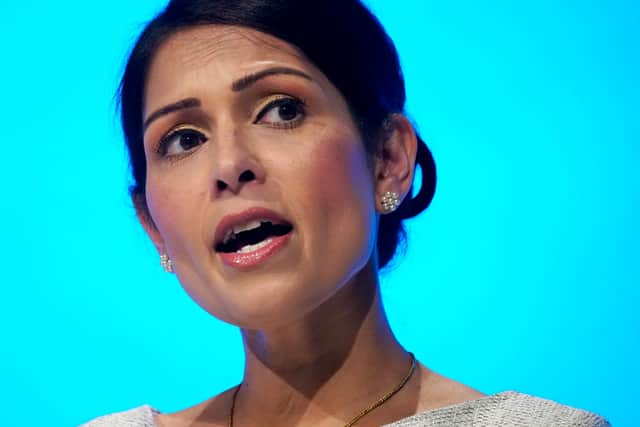Recreational drug users: passports and driving licences could be confiscated in new government crackdown
and live on Freeview channel 276
Recreational drug users in England and Wales could have their passports and driving licences seized, and face nighclub bans under new government plans.
This latest crackdown on drug use could also see casual users of cocaine and cannabis facing fines or forced to pay for and attend drug awareness courses.
Advertisement
Hide AdAdvertisement
Hide AdThe Government says the tougher penalties would help “tackle the scourge of substance abuse in society”.
What are the new proposed plans?


Under the proposals, first-time drug offenders in England and Wales would face a ‘three-strikes’ style deterrent.
It comes as recent statistics reveal over three million people in England and Wales in 2019/2020 reported using drugs in the last year.
The plans have been published in a white paper entitled “Swift, Certain, Tough. New consequences for Drug Possession.”
Advertisement
Hide AdAdvertisement
Hide AdFirst-time offenders would be required to pay for and attend a drug awareness course, and if they don’t, pay an increased fixed penalty notice or face prosecution.
Those found doing drugs for a second time will be given a caution, sent on a further drug awareness course and face a period of mandatory, random drug testing for a period of up to three months.
Third-time offenders will be likely charged for the offence, and upon conviction, could be subjected to an exclusion order banning them from specific locations, such as nightclubs - under a civil court order.
They may also be given a drug tag monitoring their usage and could see their passports and driving licences confiscated.
Advertisement
Hide AdAdvertisement
Hide AdThe measures follow the publication of the 10-year drugs strategy in December, and these proposals will not be subject to a 12-week public consultation.
What did the Government say?
Home Secretary, Priti Patel said this move shows the Government is “cracking down on drug use”.
She said: “Drugs are a scourge across society. They devastate lives and tear communities apart.
“Drug misuse puts lives at risk, fuels criminality and serious and violent crime and also results in the grotesque exploitation of young, vulnerable people.
Advertisement
Hide AdAdvertisement
Hide Ad“We are cracking down on drug use with tougher consequences for so-called recreational drug users who will face the consequences of their actions through sanctions including fines and conditions to attend rehabilitation courses, while drug offenders could have their passports and driving licences confiscated.
“In line with our strategy to tackle the harmful consequences of drugs, we aim to reverse the rising trend of substance use in society, to protect the public from the harm and violence of drug misuse.”
What are the current drug penalties?
Currently, the maximum penalties for drug possession, supply and production depend on the class the drug is in.
Cocaine, crack cocaine, ecstasy, heroin, LSD, magic mushrooms and meth are Class A and carry up to seven years in prison, and/or an unlimited fine.
Advertisement
Hide AdAdvertisement
Hide AdClass B drugs include cannabis, ritalin, and codeine, with up to five years in prison and/or an unlimited fine or both for those in caught in possession of them.
Class C drugs, which includes diazepam, carry up to two years in prison and/or an unlimited fine.
